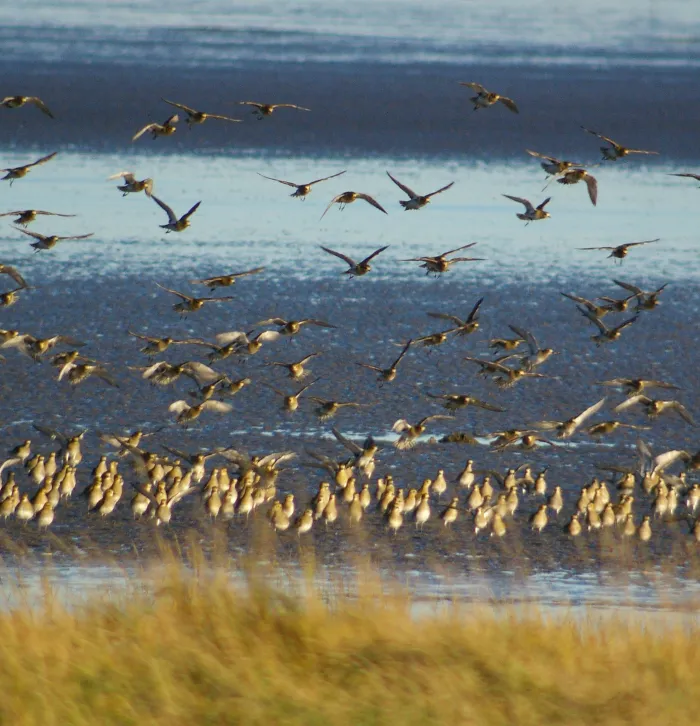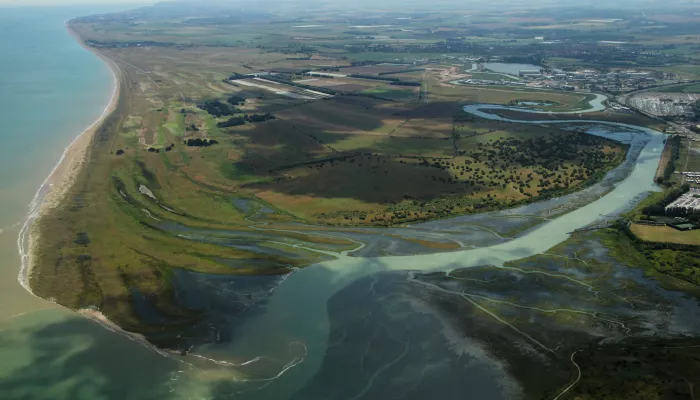Coalition, backed by Sir Roger Gale MP, warn flawed application places unreasonable burden on charities, local authorities, and communities.
A coalition of conservation organisations and local campaign groups – including Kent Wildlife Trust, Suffolk Energy Action Solutions, CPRE Kent, Save Minster Marshes, the Seal Research Trust, British Divers Marine Life Rescue, the Suffolk Preservation Society, Walberswick Against Lion Link, Saxmundham Against Needless Destruction and Sir Roger Gale MP Herne Bay and Sandwich – have formally written to the Examining Authority requesting that National Grid’s Sea Link Development Consent Order (DCO) application be withdrawn, citing serious legal, procedural, and environmental failings.
Sea Link is a proposed £1.1 billion high-voltage subsea cable project, designed to connect Suffolk and Kent to strengthen the UK’s electricity grid. The cables are due to make landfall at two highly sensitive locations: RSPB’s North Warren Nature Reserve in Suffolk and Kent Wildlife Trust’s Sandwich and Pegwell Bay National Nature Reserve in Kent. Both sites sit within landscapes of multiple national and international conservation designations. In Suffolk, the plans include a large 26m high converter station near Saxmundham, while in Kent, proposals include a new 28m high converter station and associated infrastructure at Minster Marshes.
The letter highlights serious legal, procedural, and environmental failings in the application, as documented by the Examining Authority in correspondence on 8th July and 5th August 2025. With over 500 documents, the DCO application contains fundamental errors and omissions, including:
- inadequate ecological surveys
- factual errors in reporting, missing or inconsistent documentation, and
- failure to meet statutory consultation requirements.
The coalition warns that the sheer volume of flawed material places an unreasonable burden on charities, local authorities, and communities, who must spend time and resources cross-checking an application that should have been complete and reliable at the point of submission.
The group is also alarmed by the lack of robust environmental baseline data, including incomplete surveys for protected species, inadequate land proposed for mitigation requirements and insufficient impact assessments, despite repeatedly requesting this information at the pre-application stage. National Grid, fully aware of these gaps, submitted their application regardless. There are also major concerns about the risks posed by trenchless drilling techniques near internationally protected wildlife sites, including uncertainties around the feasibility of undertaking such methods and the potential for drilling fluid leakage or maintenance related impacts, alongside the absence of credible plans to protect critical habitats such as saltmarsh.
The signatories argue that the application is not fit for Examination and warn that allowing it to proceed would undermine the integrity of the Nationally Significant Infrastructure Projects (NSIP) process set out in the Planning Act 2008. They call for National Grid to withdraw the current application and resubmit only once it is legally, procedurally, and environmentally sound.
Emma Waller, Planning & Policy Officer for Kent Wildlife Trust and campaign lead for Rethink Sea Link, says: “This application is riddled with errors and omissions. From incomplete environmental surveys to serious consultation failings, it falls far short of the standards required for Nationally Significant Infrastructure Projects. Communities and consultees should not have to waste valuable time and resources to wade through hundreds of faulty documents just to hold National Grid to account. This DCO simply isn’t fit for Examination and pushing it forward in its current state not only risks serious environmental harm but also undermines public trust in the entire planning process.
We fully support the transition to clean energy and understand new infrastructure is required to decarbonise the energy sector. However, we cannot harm what we claim to preserve, renewable energy cannot come at the cost of the environment. We encourage the Examining Authority to urge National Grid to withdraw their Sea Link application, and only resubmit once all necessary corrections, surveys and legal issues have been resolved.”
The coalition stresses that they are not opposed to renewable energy infrastructure in principle but insist that projects of this scale must be planned, consulted on, and assessed properly to avoid lasting harm to communities and the environment.
Suffolk Energy Action Solutions (SEAS) objects strongly to the Sea Link proposal. Fiona Gilmore, Founder and Director for SEAS, says: Recent news regarding nine Transmission Operator (TO) contracts at £59 billion being handed out in advance of any proper holistic network design process represents a systemic failure of governance that risks wasting billions and undermining planning safeguards across the country. Other North Sea countries do not make this terrible mistake. They carry out a comprehensive holistic network design process in advance of any commitment to contracts. Britain’s approach is tactical, developer-driven and irresponsible in the extreme.”


